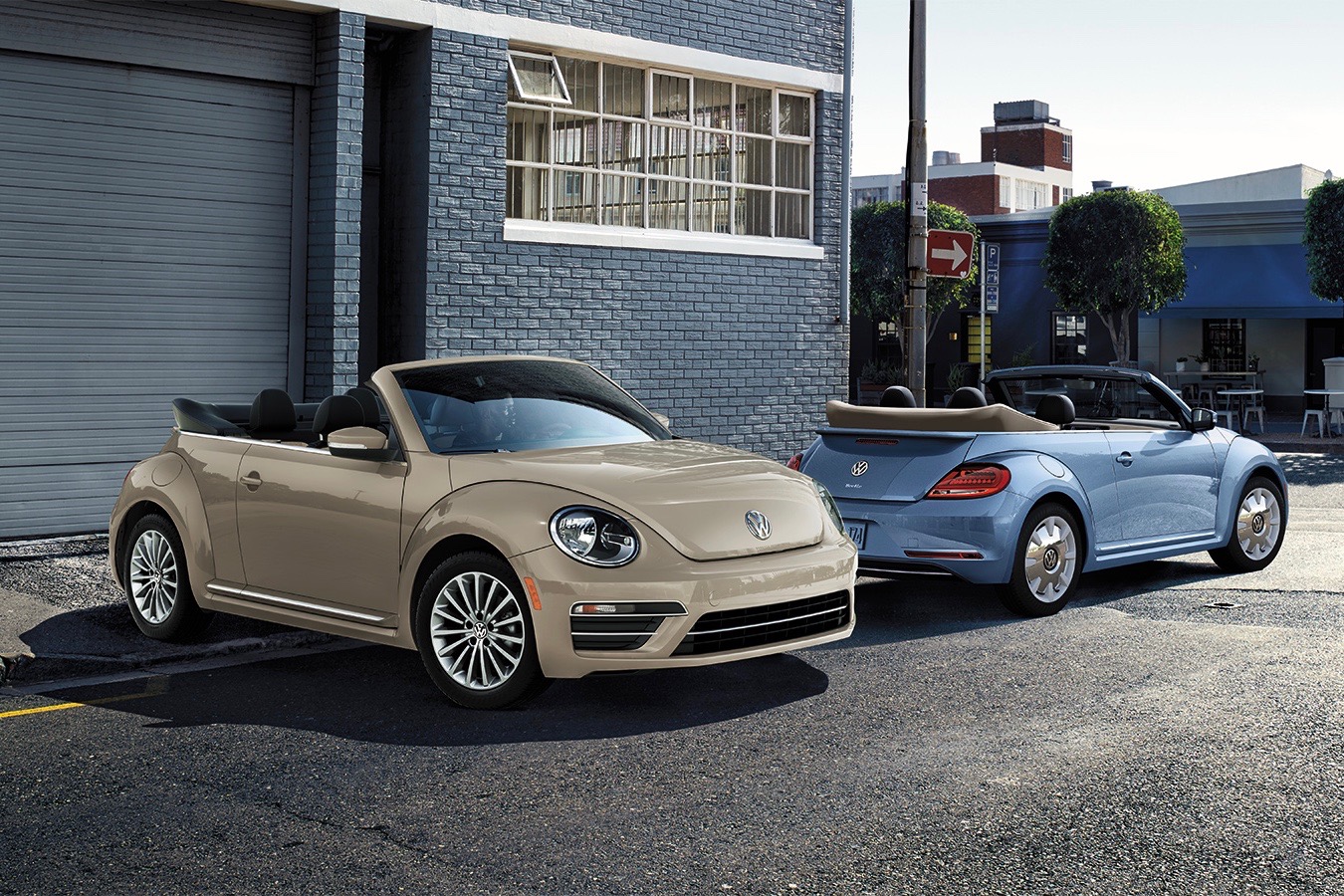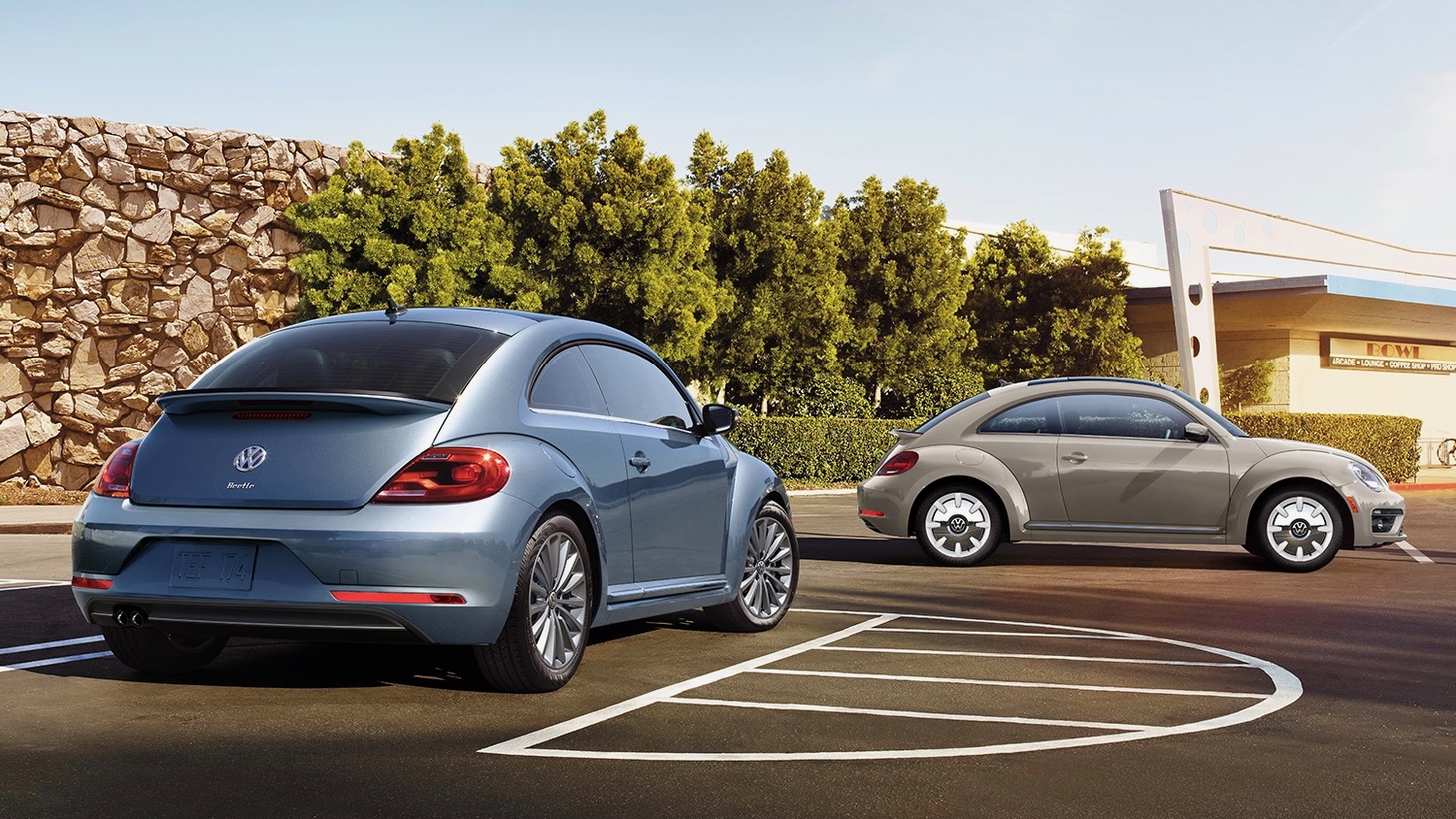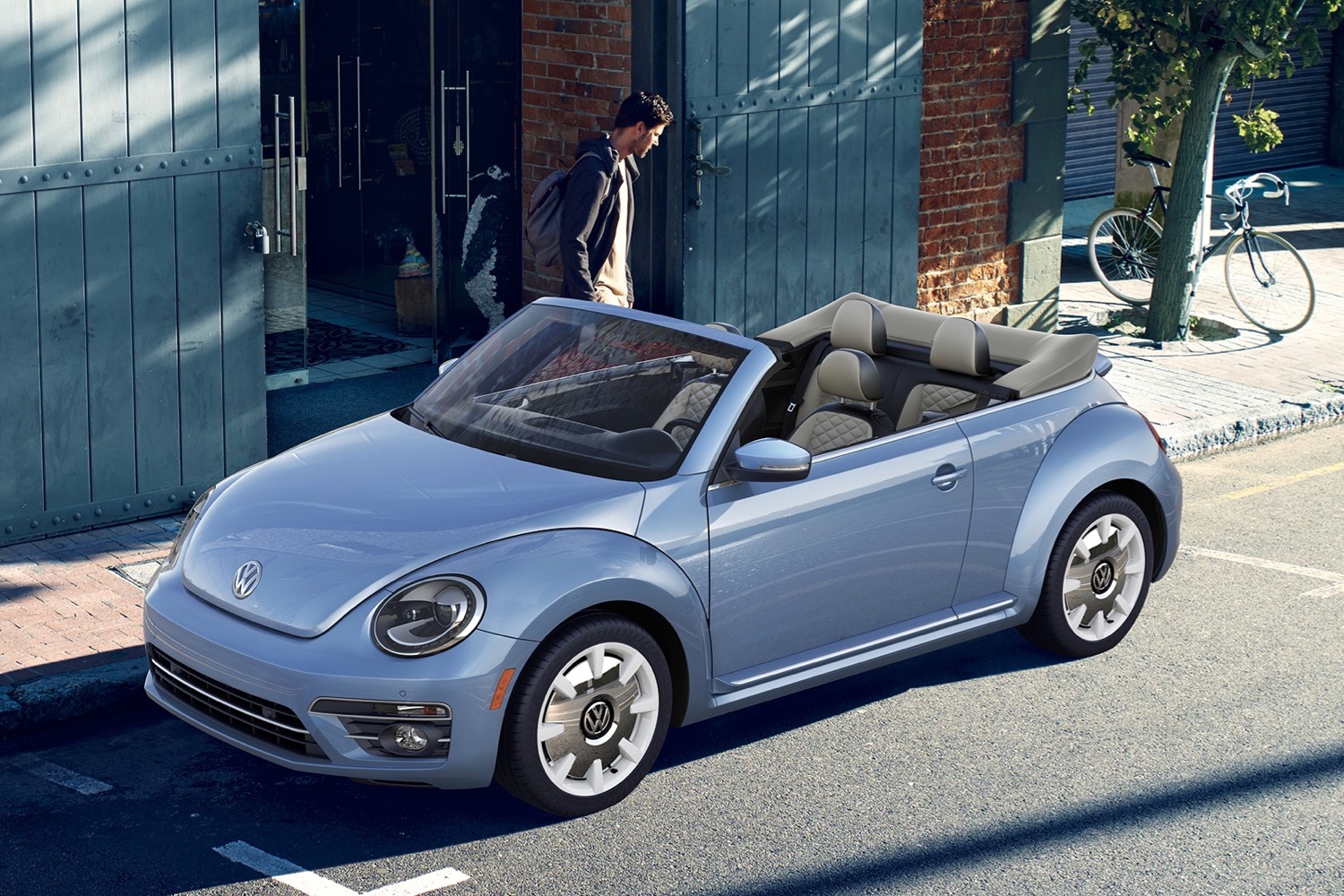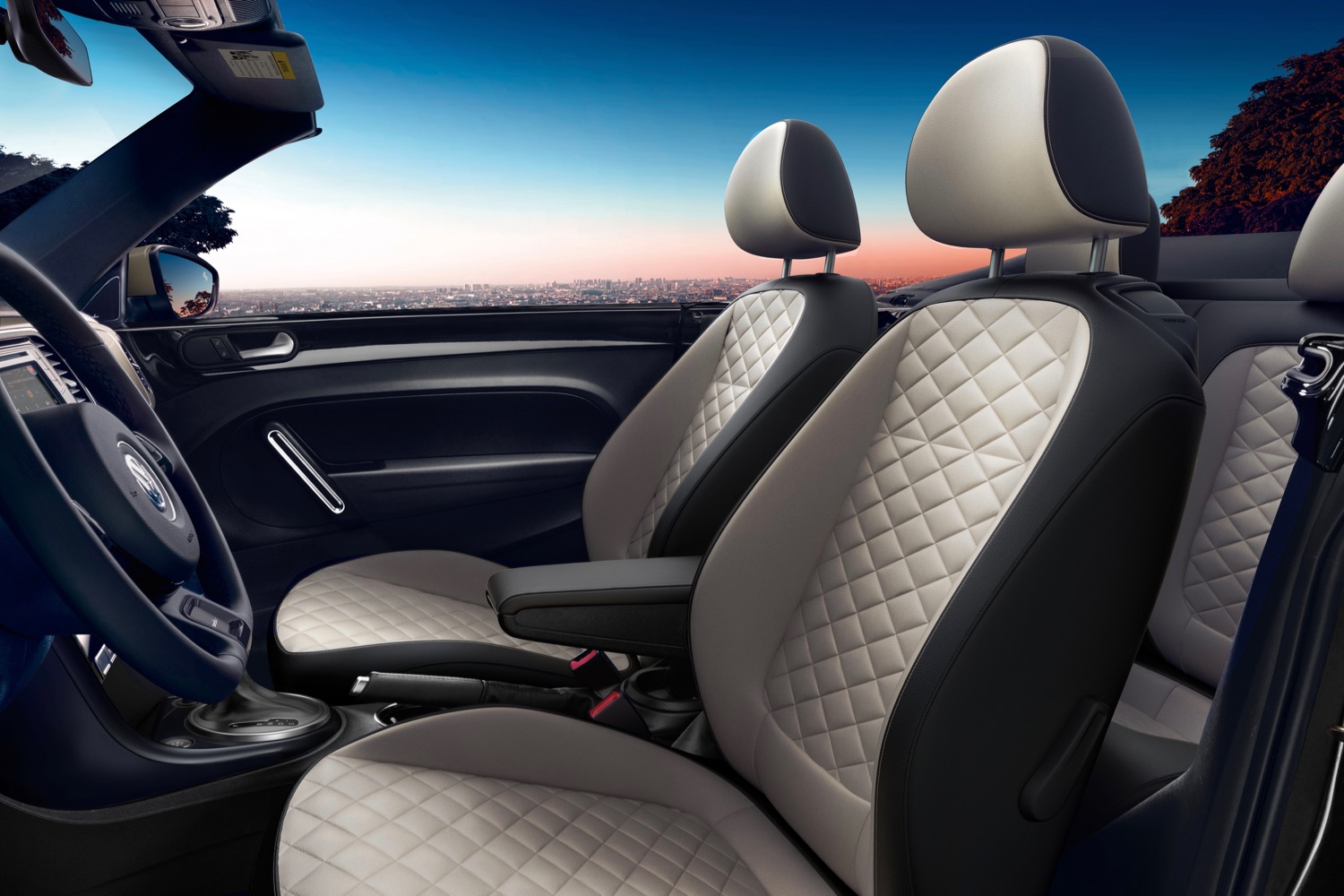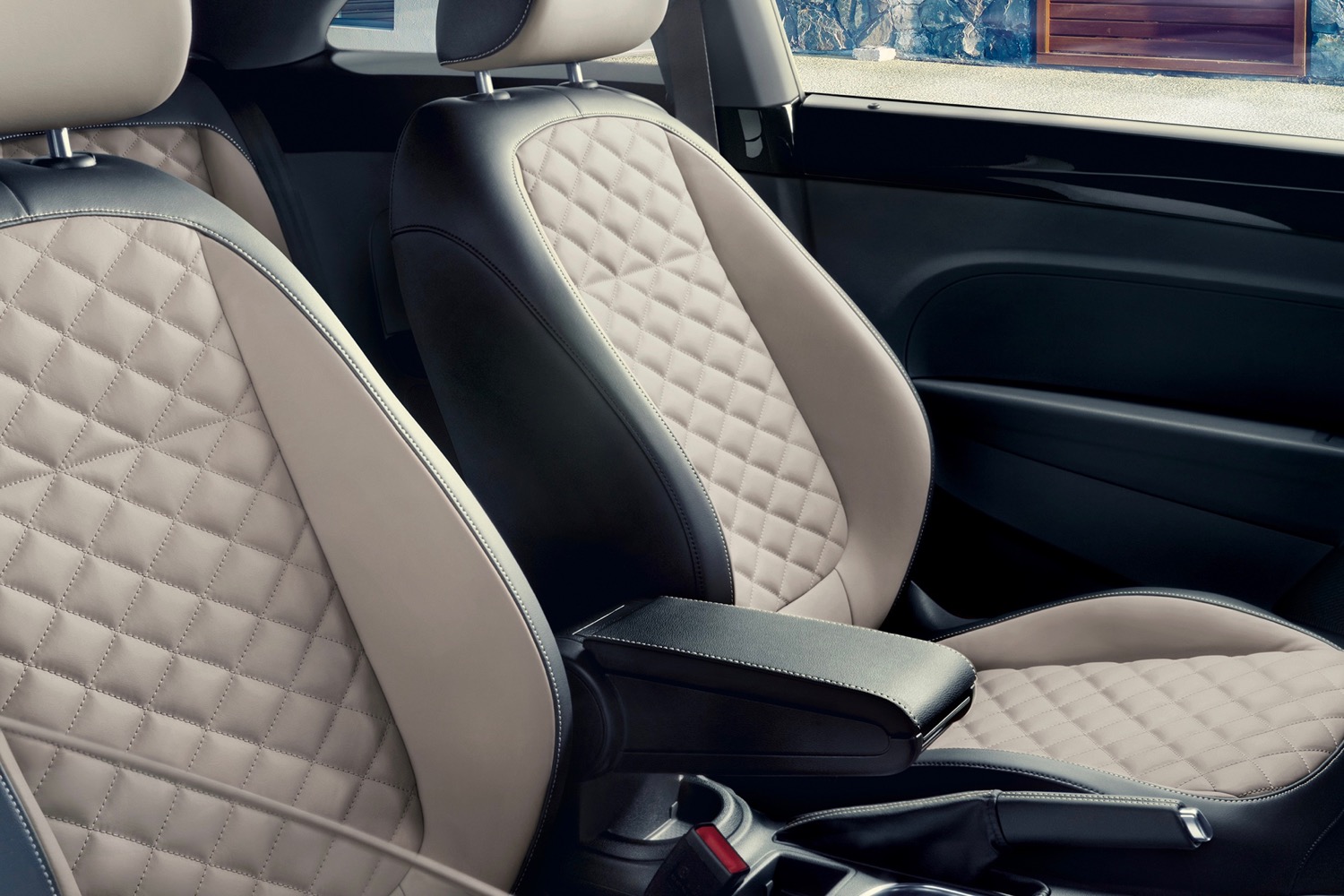The Volkswagen Beetle is bowing out for the 2019 model year with a commemorative Final Edition model. Although the current version has nothing in common with the original, rear-engine Beetle bar a name and some styling cues, this will mark the first time in roughly seven decades that Volkswagen hasn’t had a Beetle in its lineup.
In a statement, Volkswagen Group of America CEO Hinrich Woebcken confirmed that there are no plans to replace the Beetle when production ends next year. However, he noted that the impending launch of the I.D. Buzz — an electric car inspired by the classic VW Microbus — means that there is always a chance that the Beetle will return, but not anytime soon.
The Final Edition will be available in both coupe and convertible body styles, and in SE or SEL trim levels. Final Edition models are distinguished by special paint colors — Safari Uni (think beige) or Stonewashed Blue — inspired by the Última Edición (last edition) versions of the original Beetle from 2003. VW is also offering Pure White, Deep Black Pearl, and Platinum Gray as alternative options.
Other changes include 17-inch aluminum alloy wheels for the SE trim level, and 18-inch alloy wheels with a multicolor design meant to reference the Última Edición’s combination of steel wheels, hubcaps, and whitewall tires. Final Editions get model-specific upholstery as well — cloth and leatherette with diamond pleats for the SE, real leather for the SEL.
Final Editions get the same powertrain as other Beetle models, meaning a 2.0-liter turbocharged four-cylinder engine producing 174 horsepower and 184 pound-feet of torque. That power is sent to the front wheels through a six-speed automatic transmission.
With the Final Edition, the Beetle seems to be going out with a whimper, rather than a bang. The original Beetle was an icon, and the first of the modern Beetles (launched as the New Beetle in 1997) helped start the retro-styling craze. The current-generation Beetle is a much better car than its 1997-era predecessor, but the novelty of a car that looks like a Beetle but is in reality a repackaged front-wheel drive economy car seems to have worn off. Even building a fire-breathing rallycross version couldn’t get people to care about the current-generation Beetle.
The 2019 Volkswagen Beetle Final Edition starts at $23,940 for an SE coupe; the convertible starts at $28,190. Both prices are actually a bit lower than non-Final Edition SE models. There is no standard SEL model, but the Final Edition SEL starts at $26,890 for the coupe, and $30,890 for the convertible. All prices include a mandatory $895 destination charge.
